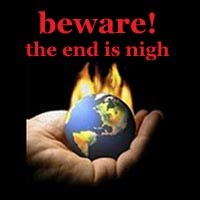Torfrida Wainright
1. What (if anything) does International Women’s Day mean to you?
I am a 59 year old public servant whose main feminist activity has been focused round building lesbian community and living an alternative way of being female. In this respect I’ve felt remote from International Womens Day for many years. These days I’m resonating more with the climate activists and wondering how we re-ignite the fire that sent womyn to Greenham.
2. Is there a feminist or women’s movement in Aotearoa New Zealand? If not why not? If so, what is it doing?
Again, I feel a bit remote from organised feminism, as well as from the queer consciousness of many young lesbians. Some of the old dykes who identify with lesbian community are exploring how we can support one another as we get older.
I think society is much much more fragmented than it was 20-30 years ago – we are hyperconsumers not just of material goods but ideas, causes, interests. People are much more diverse in what they do & think and it is very difficult to cut through all this ‘noise’ with any message at all, let alone create or maintain a cohesive movement for specific change.
There are lots of good things happening for women compared to 30 years ago as well as lots of areas of stagnation and backwardness (read any ‘women’s’ mag). I don’t think the various platforms of the feminism movement per se (eg equal pay, access to abortion etc) will make any basic difference if we continue with the current hyperconsumerist capitalist economy that turns everything into something to buy and sell, and seduces everyone into ignoring the dreadful price we are paying.
I find myself being drawn back to the anarchist roots of the radical lesbian movement and its passionate identification with the earth and its creatures – eg “Two women loving one another is the earth healing itself”. Radical images of living totally differently and simply, turning people’s usual approach to the world on its head, being shocking and subversive.
3. What are the biggest issues and challenges facing women and feminism in Aotearoa New Zealand today?
The destruction of the natural world. The likelihood that in the next few decades most people will need to relearn many basic skills – eg farming, mechanics, community building, doctoring etc – with far fewer material resources than we have now. The likelihood of a flood of climate refugees reaching NZ, desperate for land and survival. The challenge of maintaining civil society and the rule of law in these circumstances, and not going back to the times when a woman had to have men around to be safe from other men. Lots of good opportunties, as well as dreadful challenges and difficult things to bear.








No comments:
Post a Comment